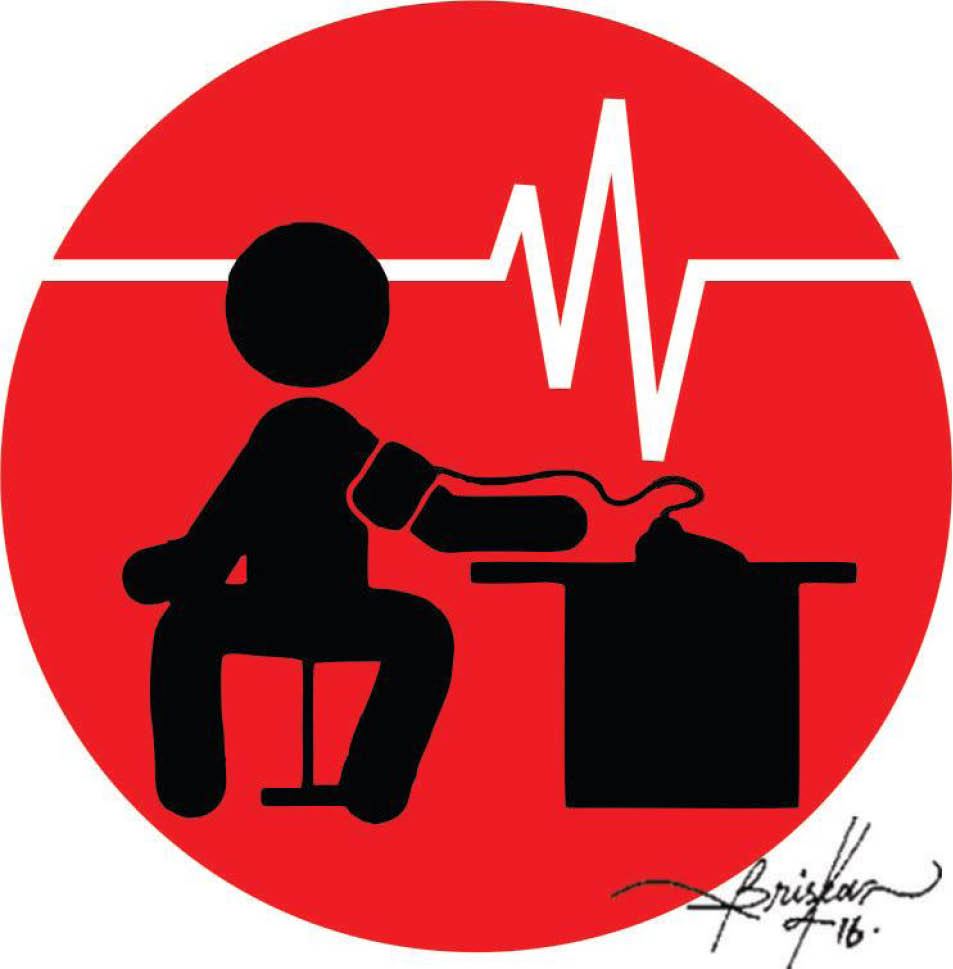For Dr Saka Suleiman Bolakale, Principal Medical Officer, Kwara State University, Malete, his experience with patients diagnosed with hypertension (high blood pressure – BP) is not palatable.
He said some of them that honoured appointments with him for months without being told to get or use any drug felt they were okay and ran away in the middle of treatment only to return with a worse condition which in most cases led to fatalities.
Relating his experience, Bolakale said, “We face such situations almost every day in the hospital. Some of these patients run away and (when they come back, their BP has shot up). When you tell them to stay off drugs and only keep up regular checkup appointments, they don’t.
“Because they have been coming and you didn’t tell them to reinstitute their drugs, they decide to run away but come back with stroke. I have seen many that have died.
Ekweremadu: No high blood pressure over EFCC drilling
High blood pressure: Why you should comply with treatment
“There was a patient of mine who was trying to cross the road and suddenly fell down with a commercial motorcycle approaching. The saving grace for the Okada man was that people saw that he didn’t hit him.
“Compliance and adherence to their medication is the biggest problem we are facing with patients.”
What is BP?
Dr Bolakale said BP was when the blood pressure was very high and above normal according to the World Health Organisation (WHO) standards.
He said, “The two types of BP generally are systolic and diastolic (up and down). The systolic has range and any measurement outside it is abnormal. So, anything above 140 millimetres of mercury is high even though it is also categorised or classified into mild, moderate and severe hypertension. But for the systolic it is 90 millimetres and above.”
Causes
The medical expert said, “There are risk factors which can give one BP, and they are divided into two: genetic and environmental. These are the main causes, and the leading environmental factor is salt intake. That is why eating outside the home or demanding extra salt to spice up food is dangerous for those that are hypertensive. The second one is seasoning; and I don’t want to mention any because over 90 per cent of them are made up of salt with additives to spice them up.
“Consuming seasoning is like taking salt directly. There is also the issue of lifestyle which can also be a contributor; like someone who always sits on the chair for long periods working. That is why it is highly recommended that such people take a walk intermittently for like 10 to 15 minutes and come back to their sitting position to continue their work.”
He further said that apart from BP, sitting for longer periods could also cause back pain, and that such people became fat because of the inability to break down the excess fat in their bodies because of their posture.
He explained that, “That is why we advise regular exercise or once weekly at most.
“Genetically, BP is hereditary, but if proper care is taken, one may not have it. We must reduce our salt intake to the barest level and the soup of hypertensive patients must not taste salty.”
Complications
The leading complication, Dr Bolakale noted, was stroke.
He said, “I can tell you that about 90 per cent of stroke cases are from hypertension, whether hemorrhagic or ischemic. It can also cause heart failure, and you see such patients with swollen legs breathing and panting and having shocks at the slightest moment; which may lead to their passing out. Some also come with paresthesia, where some parts of the body will be short of blood or palpitation. Patients also come with excessive heartbeat and will be hearing the beats themselves, while others present dizziness and lightheadedness as if nothing is in their heads.”
Diagnosis
He explained that by merely measuring blood pressure, which is not expensive, one could be diagnosed.
He said, “Once a patient is hypertensive, he will nurse it for the rest of his/her life. At times, they stop the drugs if the BP is under control, but that does not mean it cannot rise again. Some patients can come for one year without having any issue, but there is never a situation where a doctor will tell a patient not to come again.
“The problem we have with some patients is that some who have been coming for like six months without any drug prescription and told to stay off drugs decide not to come again. But by the time they represent themselves years later, it would have risen and they would come with a stroke. Patients should not disappear no matter the improvement.”
Treatment
The doctor said treatment involved taking drugs regularly, maintaining regular clinics and following the advice of the doctor.
He added that, “I would advise the government to subsidise the drugs and also employ more doctors to lessen the burden on the ones working so that they will not be overwhelmed with workload to give patients proper advice.”

 Join Daily Trust WhatsApp Community For Quick Access To News and Happenings Around You.
Join Daily Trust WhatsApp Community For Quick Access To News and Happenings Around You.


